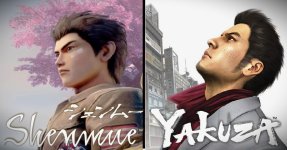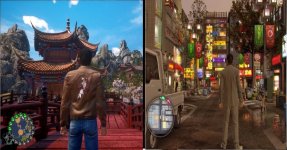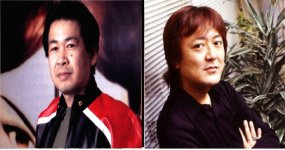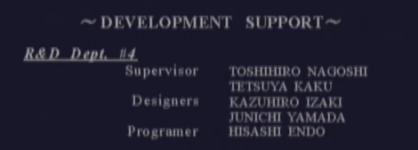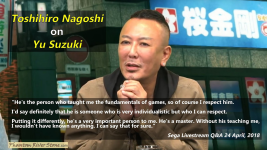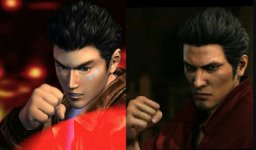Shenmue x Yakuza
Shenmue and Yakuza have a long history of being compared by fans. Some argue that Yakuza is the spiritual successor to Shenmue, and some even claim that Yakuza is what Shenmue should have been. In this blog post, i want to explore these similarities, talk about Yu Suzuki and Toshihiro Nagoshi and discuss much more.
Before we proceed, i must admit that i haven't had the chance to play the Yakuza games extensively. I did play the beginning of the first Yakuza game for PS2 a long time ago, but my knowledge of the Yakuza series is limited. Therefore, i will be focusing on what i know, and i welcome any corrections if i get any information about Yakuza wrong.
During my brief experience with the first Yakuza game, i found it quite enjoyable, although i cannot recall why i stopped playing at that time. Additionally, i vaguely remember playing a demo of Yakuza 6 for PS4, but i'm uncertain about the exact details.
Shenmue and Yakuza do share certain similarities. Both game series were created by SEGA and are set in Japan. However, as the story progresses in Shenmue, the protagonist Ryo Hazuki travels to China, whereas Yakuza primarily takes place within Japan.
In both game series, we assume the role of a Japanese character with spiky hair. In Shenmue, this character is Ryo Hazuki, while Yakuza features Kiryu Kazuma.
Let's explore some of these similarities in more detail:
1. Open-world Exploration: Both Shenmue and Yakuza offer players the chance to immerse themselves in detailed and expansive open-world environments. In Shenmue, you can explore locations like Yokosuka, Hong Kong, Guilin and many
others, while Yakuza focuses on the fictional district of Kamurocho in Tokyo, expanding to other areas in later games.
2. Engaging Storylines: Both series boast captivating storylines that revolve around the personal quests of their main characters and the mysteries they uncover. Shenmue follows Ryo Hazuki on his quest for revenge after his father's murder, gradually unraveling a larger conspiracy. Yakuza centers around Kazuma Kiryu, a former yakuza member, as he navigates through various conflicts within the criminal underworld and grapples with personal dilemmas.
3. Combat and Brawling: Both games incorporate hand-to-hand combat mechanics with a focus on intense brawling and street fights. In Shenmue, the combat system blends martial arts moves with quick-time events, while Yakuza offers a more action-oriented combat system featuring different fighting styles.
4. Minigames and Side Activities: Both series provide a plethora of side activities and minigames that offer a break from the main storyline. These activities can include arcade games, gambling, karaoke, fishing, and more, providing a diverse and immersive experience beyond the main quests.
5. Attention to Detail: Both Shenmue and Yakuza showcase a remarkable attention to detail in their environments, capturing the atmosphere of Japanese cities with realistic settings, authentic cultural elements, and recognizable landmarks. The games often feature real-world brands, locations, and cultural references, enhancing the overall sense of immersion.
While Yakuza is often considered a spiritual successor to Shenmue, it has evolved into its own distinct franchise with unique gameplay elements, storytelling approaches, and tone. Yakuza has garnered a significant fanbase and received acclaim for its blend of serious crime drama, humor, and quirky side activities. Nevertheless, both series have made a lasting impact on the gaming industry, attracting fans with their immersive worlds and engaging narratives.
Yu Suzuki and Toshihiro Nagoshi have a significant history in the gaming industry. Yu Suzuki, known as the creator of Shenmue, and Toshihiro Nagoshi, the mind behind the Yakuza series, both have ties to SEGA and have even collaborated on certain projects. In fact, Nagoshi served as a supervisor during the development of Shenmue, which is evident from his appearance in the credits of the first game. It's wonderful to see his involvement with Shenmue.
I couldn't find any information suggesting Nagoshi's involvement in Shenmue II, it's possible that he didn't work on the second game.
As for their personal relationship, it's not entirely clear whether Yu Suzuki and Toshihiro Nagoshi are friends. However, i came across some intriguing information about their thoughts on each other's work.
Yu Suzuki: Toshihiro Nagoshi used to work in my division. He graduated with a degree in movie production so he was probably more interested in the visual production side of development. When I imagine SEGA with Ryu ga Gotoku and SEGA without Ryu ga Gotoku, the SEGA with Ryu ga Gotoku is undoubtedly more attractive. So, I'm thankful that Nagoshi has been able to learn from the challenges I endured, and use it to give back to SEGA. It's a good thing for SEGA and I'm very thankful for that.
Toshihiro Nagoshi: I still think Shenmue was an epoch-making game at the time.
Toshihiro Nagoshi on Shenmue and Yakuza comparisons: Fans are free to judge the game as they like. All of these games were created by SEGA. We might have included game elements from past titles unconsciously. But all of those elements appear in an evolved style.
Toshihiro Nagoshi on Yu Suzuki: No one has had a greater influence on me making games than Yu Suzuki. Of course. Dissatisfaction and resentment will erase the time. So now there are no negative emotions. And the only thing left is thankful to Mr. Yu Suzuki for teaching me. That's why it was a valuable encounter, and after 30 years i was able to say so.
Hisashi Suzuki was a senior director and one time he said this about Shenmue and Yakuza.
Hisashi Suzuki: Shenmue's concept was wonderful. It was something whose creation was only possible with the SEGA of
that time. And it's because there was Shenmue that Nagoshi was able to create Yakuza. Yakuza is a SEGA-like creation. Sega must always provide something new.
Overall, it's fascinating to delve into their perspectives on this topic. The fact that Toshihiro Nagoshi views Yu Suzuki as a significant influence and that Yu Suzuki acknowledges the success of Yakuza underscores the interplay of their creative minds within the SEGA realm.
Yakuza has gained more popularity than Shenmue, receiving greater support and attention from SEGA. This is evident in Virtua Fighter 5 Ultimate Showdown, where a Yakuza DLC was released, but no mention of a Shenmue DLC, despite Shenmue having connections with VF. While i am not against the Yakuza DLC, as i have even purchased it myself, I believe Shenmue also deserves a DLC for VF 5 Ultimate Showdown. Unfortunately, it seems unlikely that this will ever happen, and it is disheartening to see that SEGA appears to neglect Shenmue.
The Yakuza series has a larger game library, and SEGA is currently working on Yakuza 8. In contrast, Shenmue consists of only three games, with fans enduring an 18-year wait for the release of Shenmue III. Some fans now demand an immediate conclusion to the story, without considering the creative vision of Yu Suzuki, the mastermind behind Shenmue. There are even suggestions that Shenmue should have ended with the third game.
This situation is saddening because Yu Suzuki clearly intends to tell his story at his own pace. For instance, if Yu Suzuki were to say that he needs two more games to complete Shenmue, i would be completely fine with that. Yu Suzuki should have the freedom to shape Shenmue as he desires. I hope he can bring the story to a satisfying conclusion in a manner that satisfies his creative vision, as it is ultimately his tale to tell.
As a storyteller myself, i understand the importance of maintaining the narrative's integrity rather than rushing its conclusion. The deliberate and slower pace of Shenmue adds a unique charm to its storytelling.
Unfortunately, some individuals now label Yu Suzuki as a scam artist, and even some Shenmue fans perceive him as a mastermind villain simply because Shenmue III did not meet their expectations. They criticize his silence regarding Shenmue IV. This treatment of Yu Suzuki is truly disheartening, as he deserves respect for his contributions.
People do not have to agree with the direction Yu Suzuki is taking with the Shenmue series, but they should still show him the respect he deserves.
This contrasting situation did not occur with Yakuza. The Yakuza series thrives and is loved by many, with SEGA actively supporting it. I am delighted by the success of Yakuza and the dedication of its fanbase. However, I believe that Shenmue deserves an equal level of appreciation and support with many products and games. The reality is that Shenmue is consistently overlooked and faces criticism from various angles.
Shenmue was a groundbreaking game that revolutionized the industry when it was first released in 1999. It predates the 3D Open World GTA titles and even the Yakuza series. Despite its significant impact, Shenmue does not receive the recognition and support it truly deserves. Yu Suzuki does not receive the credit he deserves.
It's disheartening to witness the relentless criticism and negative treatment that the Shenmue series receives from people in various aspects. Shenmue and its creator, Yu Suzuki, deserve much better treatment than what they are currently receiving.
~ Final Thoughts ~
Shenmue and Yakuza share some similarities, but ultimately, they are different game series from each other. Shenmue revolves around the theme of vengeance and takes players on a martial arts adventure, portraying a journey of personal growth and various other aspects. On the other hand, to the best of my knowledge, Yakuza focuses on the story of a Japanese gang member seeking to escape a life of crime.
Shenmue and Yakuza don't have to be the same to be good. They are distinct game series, each with its own unique strengths and qualities.
I have plans to update this post once i have played all the Yakuza games. This way, I will be able to provide a more detailed opinion about Yakuza and my overall perspective on this topic.
It's worth noting that there are individuals who enjoy both series, and i believe that i will likely fall into that category as well. I anticipate enjoying the Yakuza series, and it's wonderful to see that Toshihiro-san respects Yu-san and has been influenced by his work in some way.
It's essential for both fan bases to respect one another. There is no need for hate or conflicts between the Shenmue fan base and the Yakuza fan base. It's crucial to treat each other with respect and kindness. By doing so, we can contribute to making the world a better place.
And how about you? What are your thoughts on this fascinating subject? Please feel free to share your opinion in the comments section below. Thank you all for taking the time to read, and remember to cherish the company of your loved ones, keeping your friends close. See you all in my next blog post, bye bye. Hiki ~

~ Source and Credits ~
Profile: Toshihiro Nagoshi - Interview
SEGA's own Yakuza speaks to SPOnG ... click for full feature
spong.com
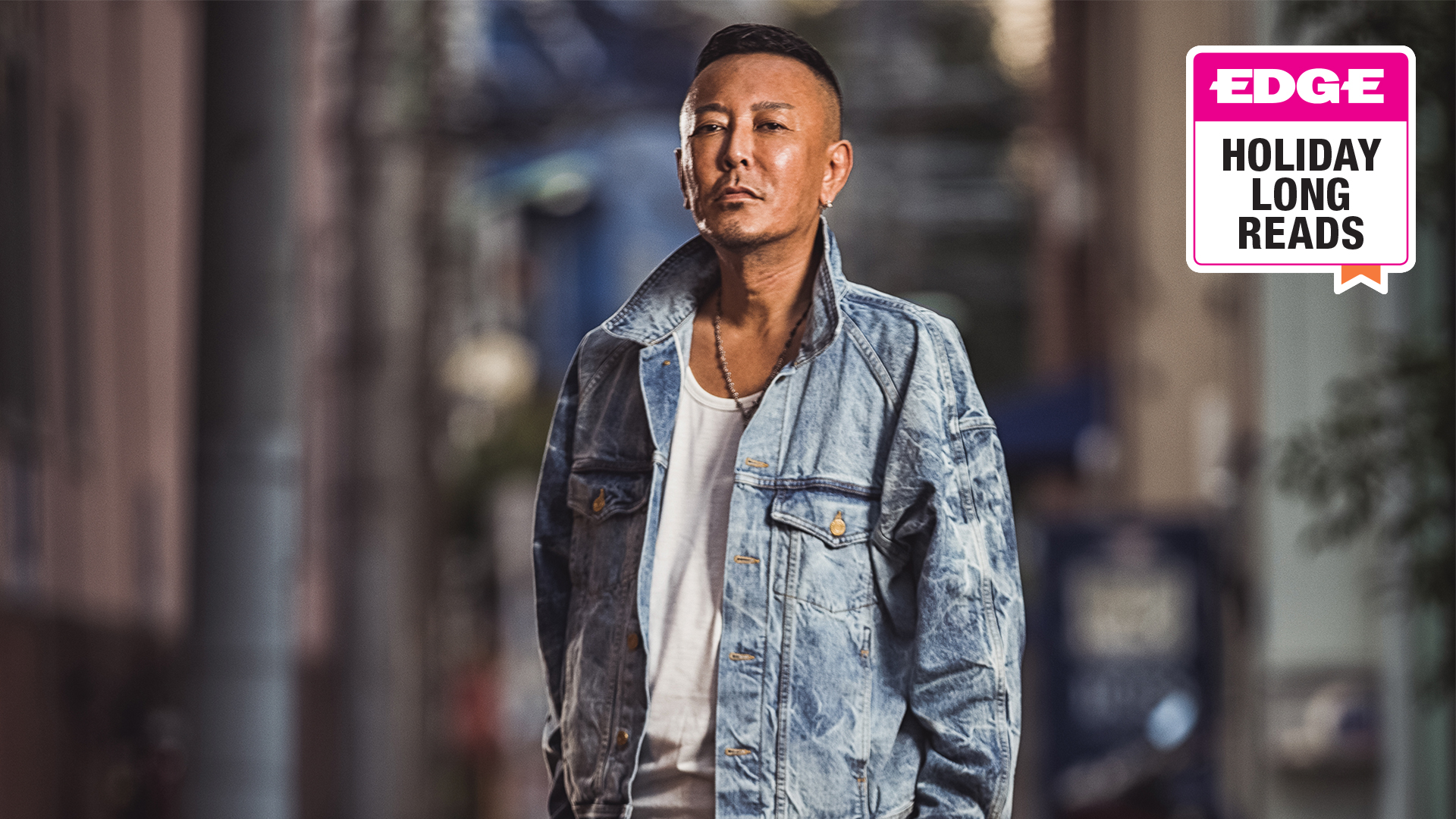
From Shenmue to Yakuza, Toshihiro Nagoshi looks back on an illustrious career of Japanese game development
Sega’s creative chief reminisces on his portfolio of stone-cold classics
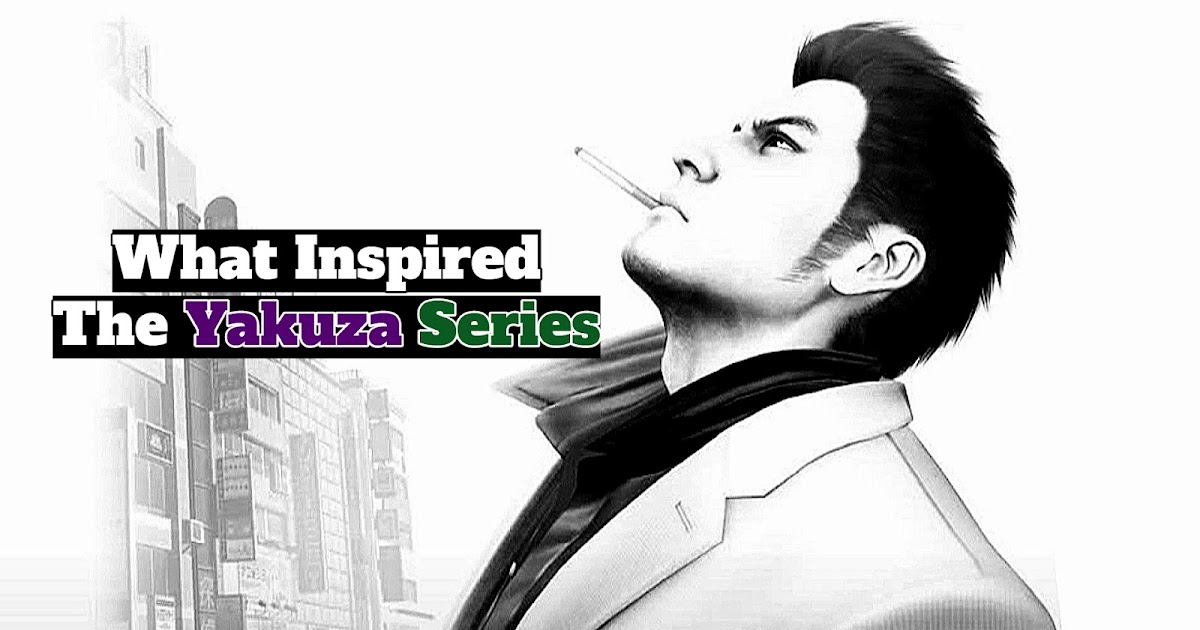
What Inspired: The Yakuza Series
A website by geeks and gamers for geeks and gamers!
Phantom River Stone
A blog on the Shenmue series of games from Yu Suzuki with a mission to translate articles, videos and updates for English-speaking fans.
I think the last photo in this post was done by Shenmue Forever, i'm not sure but i'm giving the credits, thank you.

